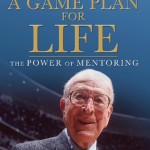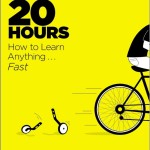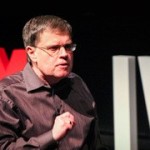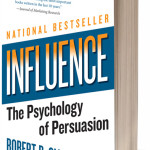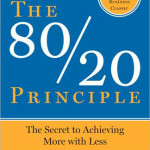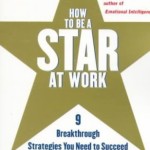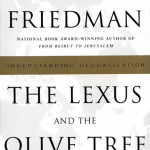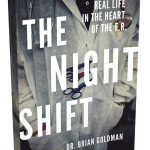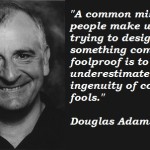Martin Luther King, Jr. (January 15, 1929 – April 4, 1968) was an American pastor, activist, humanitarian, and leader in the African-American Civil Rights Movement. He is best known for his role in the advancement of civil rights using nonviolent civil disobedience based on his Christian beliefs.
He was born Michael King, but his father changed his name in honor of the German reformer Martin Luther. A Baptist minister, King became a civil rights activist early in his career. He led the 1955 Montgomery Bus Boycott and helped found the Southern Christian Leadership Conference (SCLC) in 1957, serving as its first president. With the SCLC, King led an unsuccessful struggle against segregation in Albany, Georgia, in 1962, and organized nonviolent protests in Birmingham, Alabama, that attracted national attention following television news coverage of the brutal police response. King also helped to organize the 1963 March on Washington, where he delivered his famous “I Have a Dream” speech. There, he established his reputation as one of the greatest orators in American history. J. Edgar Hoover considered him a radical and made him an object of the Federal Bureau of Investigation’s COINTELPRO for the rest of his life.“Darkness cannot drive out darkness: only light can do that. Hate cannot drive out hate: only love can do that.”
On October 14, 1964, King received the Nobel Peace Prize for combating racial inequality through nonviolence. In 1965, he and the SCLC helped to organize the Selma to Montgomery marches and the following year, he took the movement north to Chicago to work on segregated housing. In the final years of his life, King expanded his focus to include poverty and the Vietnam War, alienating many of his liberal allies with a 1967 speech titled “Beyond Vietnam”. In 1968 King was planning a national occupation of Washington, D.C., to be called the Poor People’s Campaign, when he was assassinated on April 4 in Memphis, Tennessee. His death was followed byriots in many U.S. cities. Allegations that James Earl Ray, the man convicted of killing King, had been framed or acted in concert with government agents persisted for decades after the shooting. The jury of a 1999 civil trial found Loyd Jowers to be complicit in a conspiracy against King.
King was posthumously awarded the Presidential Medal of Freedom and the Congressional Gold Medal. Martin Luther King, Jr. Day was established as a holiday in numerous cities and states beginning in 1971, and as a U.S. federal holiday in 1986. Hundreds of streets in the U.S. have been renamed in his honor. In addition, a county was rededicated in his honor. A memorial statue on the National Mall was opened to the public in 2011.
“Faith is taking the first step even when you can’t see the whole staircase.”
Early life and education
Martin Luther King, Jr. was born on January 15, 1929, in Atlanta, Georgia, to Reverend Martin Luther King, Sr. and Alberta Williams King. His legal name at birth was “Michael King”. King’s father was also born Michael King. The father “changed” both names on his own during a 1934 trip to Nazi Germany to attend the Fifth Baptist World Alliance Congress in Berlin. It was during this time he chose to be called Martin Luther King in honor of the German reformer Martin Luther. King had Irish ancestry through his paternal great grandfather.
Martin, Jr., was a middle child, between an older sister, Willie Christine King, and a younger brother, Alfred Daniel Williams King. King sang with his church choir at the 1939 Atlanta premiere of the movie Gone with the Wind.
King suffered from depression throughout most of his life. In his adolescent years, he initially felt some resentment against whites due to the “racial humiliation” that he, his family, and his neighbors often had to endure in the segregated South. At age 12, shortly after his maternal grandmother died, King blamed himself and attempted to commit suicide by jumping out of a second story window, but survived.
King was originally skeptical of many of Christianity’s claims. At the age of thirteen, he denied the bodily resurrection of Jesus during Sunday school. From this point, he stated, “doubts began to spring forth unrelentingly”. However, he later concluded that the Bible has “many profound truths which one cannot escape” and decided to enter the seminary.
Growing up in Atlanta, King attended Booker T. Washington High School. A precocious student, he skipped both the ninth and the twelfth grades and entered Morehouse Collegeat age fifteen without formally graduating from high school. In 1948, he graduated from Morehouse with a B.A. degree in sociology, and enrolled in Crozer Theological Seminary in Chester, Pennsylvania, from which he graduated with a B.Div. degree in 1951. King married Coretta Scott, on June 18, 1953, on the lawn of her parents’ house in her hometown of Heiberger, Alabama. They became the parents of four children: Yolanda King, Martin Luther King III, Dexter Scott King, and Bernice King. During their marriage, King limited Coretta’s role in the civil rights movement, and expected her to be a housewife.
“Our lives begin to end the day we become silent about things that matter.”
Doctoral studies
King then began doctoral studies in systematic theology at Boston University and received his Ph.D. degree on June 5, 1955, with a dissertation on “A Comparison of the Conceptions of God in the Thinking of Paul Tillich and Henry Nelson Wieman”. An academic inquiry concluded in October 1991 that portions of his dissertation had been plagiarized and he had acted improperly. However, “despite its finding, the committee said that ‘no thought should be given to the revocation of Dr. King’s doctoral degree,’ an action that the panel said would serve no purpose.” The committee also found that the dissertation still “makes an intelligent contribution to scholarship.”
“In the end, we will remember not the words of our enemies, but the silence of our friends.”
Legacy
King’s main legacy was to secure progress on civil rights in the U.S. Just days after King’s assassination, Congress passed the Civil Rights Act of 1968. Title VIII of the Act, commonly known as the Fair Housing Act, prohibited discrimination in housing and housing-related transactions on the basis of race, religion, or national origin (later expanded to include sex, familial status, and disability). This legislation was seen as a tribute to King’s struggle in his final years to combat residential discrimination in the U.S.
Internationally, King’s legacy includes influences on the Black Consciousness Movement and Civil Rights Movement in South Africa. King’s work was cited by and served as an inspiration for South African leader Albert Lutuli, who fought for racial justice in his country and was later awarded the Nobel Prize. The day following King’s assassination, school teacher Jane Elliott conducted her first “Blue Eyes/Brown Eyes” exercise with her class of elementary school students in Riceville, Iowa. Her purpose was to help them understand King’s death as it related to racism, something they little understood as they lived in a predominately white community. King has become a national icon in the history of American progressiveness.
King’s wife, Coretta Scott King, followed in her husband’s footsteps and was active in matters of social justice and civil rights until her death in 2006. The same year that Martin Luther King was assassinated, she established the King Center in Atlanta, Georgia, dedicated to preserving his legacy and the work of championing nonviolent conflict resolution and tolerance worldwide. Their son, Dexter King, serves as the center’s chairman. Daughter Yolanda King, who died in 2007, was a motivational speaker, author and founder of Higher Ground Productions, an organization specializing in diversity training.
Even within the King family, members disagree about his religious and political views about gay, lesbian, bisexual and transgender people. King’s widow Coretta said publicly that she believed her husband would have supported gay rights. However, his youngest child,Bernice King, has said publicly that he would have been opposed to gay marriage.
On February 4, 1968, at the Ebenezer Baptist Church, in speaking about how he wished to be remembered after his death, King stated:
I’d like somebody to mention that day that Martin Luther King Jr. tried to give his life serving others. I’d like for somebody to say that day that Martin Luther King Jr. tried to love somebody.
I want you to say that day that I tried to be right on the war question. I want you to be able to say that day that I did try to feed the hungry. I want you to be able to say that day that I did try in my life to clothe those who were naked. I want you to say on that day that I did try in my life to visit those who were in prison. And I want you to say that I tried to love and serve humanity.
Yes, if you want to say that I was a drum major. Say that I was a drum major for justice. Say that I was a drum major for peace. I was a drum major for righteousness. And all of the other shallow things will not matter. I won’t have any money to leave behind. I won’t have the fine and luxurious things of life to leave behind. But I just want to leave a committed life behind.
“I have decided to stick to love…Hate is too great a burden to bear.”
Martin Luther King, Jr. Day
Beginning in 1971, cities such as St. Louis, Missouri, and states established annual holidays to honor King. At the White House Rose Garden on November 2, 1983, President Ronald Reagan signed a bill creating a federal holiday to honor King. Observed for the first time on January 20, 1986, it is called Martin Luther King, Jr. Day. Following President George H. W. Bush’s 1992 proclamation, the holiday is observed on the third Monday of January each year, near the time of King’s birthday. On January 17, 2000, for the first time, Martin Luther King Jr. Day was officially observed in all fifty U.S. states. Arizona (1992), New Hampshire (1999) and Utah (2000) were the last three states to recognized the holiday. Utah previously celebrated the holiday at the same time but under the name Human Rights Day.
“Let no man pull you so low as to hate him.”
Liturgical commemorations
King is remembered as a martyr by the Episcopal Church in the United States of America with an annual feast day on the anniversary of his death, April 4. The Evangelical Lutheran Church in America commemorates King liturgically on the anniversary of his birth, January 15.
Awards and recognition
King was awarded at least fifty honorary degrees from colleges and universities. On October 14, 1964, King became the youngest recipient of the Nobel Peace Prize, which was awarded to him for leading non-violent resistance to racial prejudice in the U.S. In 1965, he was awarded the American Liberties Medallion by the American Jewish Committee for his “exceptional advancement of the principles of human liberty”. In his acceptance remarks, King said, “Freedom is one thing. You have it all or you are not free.”In 1957, he was awarded the Spingarn Medal from the NAACP. Two years later, he won the Anisfield-Wolf Book Award for his book Stride Toward Freedom: The Montgomery Story. In 1966, the Planned Parenthood Federation of America awarded King the Margaret Sanger Award for “his courageous resistance to bigotry and his lifelong dedication to the advancement of social justice and human dignity”. Also in 1966, King was elected as a fellow of the American Academy of Arts and Sciences. In 1971 he was posthumously awarded a Grammy Award for Best Spoken Word Album for his Why I Oppose the War in Vietnam.
In 1977, the Presidential Medal of Freedom was posthumously awarded to King by President Jimmy Carter. The citation read:
Martin Luther King, Jr., was the conscience of his generation. He gazed upon the great wall of segregation and saw that the power of love could bring it down. From the pain and exhaustion of his fight to fulfill the promises of our founding fathers for our humblest citizens, he wrung his eloquent statement of his dream for America. He made our nation stronger because he made it better. His dream sustains us yet.
King and his wife were also awarded the Congressional Gold Medal in 2004.
King was second in Gallup’s List of Most Widely Admired People of the 20th Century. In 1963, he was named Time Person of the Year, and in 2000, he was voted sixth in an online “Person of the Century” poll by the same magazine. King placed third in the Greatest American contest conducted by the Discovery Channel and AOL.
More than 730 cities in the United States have streets named after King. King County, Washington rededicated its name in his honor in 1986, and changed its logo to an image of his face in 2007. The city government center in Harrisburg, Pennsylvania, is named in honor of King.
In 1980, the U.S. Department of the Interior designated King’s boyhood home in Atlanta and several nearby buildings the Martin Luther King, Jr. National Historic Site. In 1996, Congress authorized the Alpha Phi Alpha fraternity, of which King had been a member, to establish a foundation to manage fund raising and design of a national Martin Luther King, Jr. Memorial on the Mall in Washington, D.C. King was the first African American and the fourth non-president honored with his own memorial in the National Mall area. The memorial opened in August 2011 and is administered by the National Park Service. The address of the monument, 1964 Independence Avenue, S.W., commemorates the year that the Civil Rights Act of 1964 became law. [From: Wikipedia.com]
“There comes a time when one must take a position that is neither safe, nor politic, nor popular, but he must take it because conscience tells him it is right.”
Books
- The Autobiography of Martin Luther King, Jr.
- Why We Can’t Wait
- Letter from the Birmingham Jail
- A Testament of Hope: The Essential Writings and Speeches
- Strength to Love
- I Have a Dream
- I Have a Dream: Writings and Speeches That Changed the World
- I Have a Dream / Letter from Birmingham Jail
- A Call to Conscience: The Landmark Speeches
- Where Do We Go from Here: Chaos or Community?
- The Measure of a Man
- Stride Toward Freedom: The Montgomery Story
- The Words of Martin Luther King, Jr.
- The Trumpet of Conscience
- My Daddy, Dr. Martin Luther King, Jr.
- All Labor Has Dignity
- A Gift of Love: Sermons from Strength to Love and Other Preaching
- “Thou, Dear God”: Prayers That Open Hearts and Spirits
- The Martin Luther King, Jr. Companion: Quotations from the Speeches, Essays, and Books of Martin Luther King, Jr.
- A Time to Break Silence: The Essential Works of Martin Luther King, Jr., for Students
- “In a Single Garment of Destiny”: A Global Vision of Justice
- MLK : The Martin Luther King, Jr. Tapes : Featuring Speeches given by Rev. Martin Luther King Jr.
- MLK: A Celebration in Word and Image
- Conscience for Change
- The Papers of Martin Luther King, Jr., Vol. 1: Called to Serve, January 1929-June 1951
- Inspiring Quotes: The Greatest Quotes of Martin Luther King Junior
- The Papers of Martin Luther King, Jr., Vol. 3: Birth of a New Age, December 1955-December 1956
- I’ve Been to the Mountaintop
[From: Goodreads.com]
“Only in the darkness can you see the stars.”
I Have a Dream
“I Have a Dream” is a public speech delivered by American civil rights activist Martin Luther King, Jr. on August 28, 1963, in which he calls for an end to racism in the United States. Delivered to over 250,000 civil rights supporters from the steps of the Lincoln Memorial during the March on Washington, the speech was a defining moment of the American Civil Rights Movement.
Beginning with a reference to the Emancipation Proclamation, which freed millions of slaves in 1863, King observes that: “one hundred years later, the Negro still is not free”. Toward the end of the speech, King departed from his prepared text for a partly improvised per oration on the theme “I have a dream”, prompted by Mahalia Jackson’s cry: “Tell them about the dream, Martin!” In this part of the speech, which most excited the listeners and has now become its most famous, King described his dreams of freedom and equality arising from a land of slavery and hatred. Jon Meacham writes that, “With a single phrase, Martin Luther King, Jr. joined Jefferson and Lincoln in the ranks of men who’ve shaped modern America”.[6] The speech was ranked the top American speech of the 20th century in a 1999 poll of scholars of public address.
Background
The March on Washington for Jobs and Freedom was partly intended to demonstrate mass support for the civil rights legislation proposed by President Kennedy in June. Martin Luther King and other leaders therefore agreed to keep their speeches calm, also, to avoid provoking the civil disobedience which had become the hallmark of the civil rights movement. King originally designed his speech as a homage to Abraham Lincoln’s Gettysburg Address, timed to correspond with the 100-year centennial of the Emancipation Proclamation.
Speech title and the writing process
King had been preaching about dreams since 1960, when he gave a speech to the National Association for the Advancement of Colored People (NAACP) called “The Negro and the American Dream”. This speech discusses the gap between the American dream and reality, saying that overt white supremacists have violated the dream, and that “our federal government has also scarred the dream through its apathy and hypocrisy, its betrayal of the cause of justice”. King suggests that “It may well be that the Negro is God’s instrument to save the soul of America.” He had also delivered a “dream” speech in Detroit, in June 1963, when he marched on Woodward Avenue with Walter Reuther and the Reverend C. L. Franklin, and had rehearsed other parts.
The March on Washington Speech, known as “I Have a Dream Speech”, has been shown to have had several versions, written at several different times. It has no single version draft, but is an amalgamation of several drafts, and was originally called “Normalcy, Never Again”. Little of this, and another “Normalcy Speech”, ended up in the final draft. A draft of “Normalcy, Never Again” is housed in the Morehouse College Martin Luther King, Jr. Collection of the Robert W. Woodruff Library, Atlanta University Center and Morehouse College. The focus on “I have a dream” comes through the speech’s delivery. Toward the end of its delivery, noted African American gospel singer Mahalia Jackson shouted to King from the crowd, “Tell them about the dream, Martin.” King stopped delivering his prepared speech, and started “preaching”, punctuating his points with “I have a dream.”
The speech was drafted with the assistance of Stanley Levison and Clarence Benjamin Jones in Riverdale, New York City. Jones has said that “the logistical preparations for the march were so burdensome that the speech was not a priority for us” and that, “on the evening of Tuesday, Aug. 27, 12 hours before the March] Martin still didn’t know what he was going to say”.
Leading up to the speech’s rendition at the Great March on Washington, King had delivered its “I have a dream” refrains in his speech before 25,000 people in Detroit’s Cobo Hall immediately after the 125,000-strong Great Walk to Freedom in Detroit, June 23, 1963. After the Washington, D.C. March, a recording of King’s Cobo Hall speech was released by Detroit’s Gordy Records as an LP entitled “The Great March To Freedom”.
The speech
Widely hailed as a masterpiece of rhetoric, King’s speech invokes the Declaration of Independence, the Emancipation Proclamation, and the United States Constitution. Early in his speech, King alludes to Abraham Lincoln’s Gettysburg Address by saying “Five score years ago…” In reference to the abolition of slavery articulated in the Emancipation Proclamation, King says: “It came as a joyous daybreak to end the long night of their captivity.” Anaphora (i.e, the repetition of a phrase at the beginning of sentences) is employed throughout the speech. Early in his speech, King urges his audience to seize the moment; “Now is the time” is repeated three times in the sixth paragraph. The most widely cited example of anaphora is found in the often quoted phrase “I have a dream”, which is repeated eight times as King paints a picture of an integrated and unified America for his audience. Other occasions include “One hundred years later”, “We can never be satisfied”, “With this faith”, “Let freedom ring”, and “free at last”. King was the sixteenth out of eighteen people to speak that day, according to the official program.
I still have a dream, a dream deeply rooted in the American dream – one day this nation will rise up and live up to its creed, “We hold these truths to be self evident: that all men are created equal.” I have a dream..
Among the most quoted lines of the speech include “I have a dream that my four little children will one day live in a nation where they will not be judged by the color of their skin, but by the content of their character. I have a dream today!”
According to U.S. Representative John Lewis, who also spoke that day as the president of the Student Nonviolent Coordinating Committee, “Dr. King had the power, the ability, and the capacity to transform those steps on the Lincoln Memorial into a monumental area that will forever be recognized. By speaking the way he did, he educated, he inspired, he informed not just the people there, but people throughout America and unborn generations.”
The ideas in the speech reflect King’s social experiences of the mistreatment of blacks. The speech draws upon appeals to America’s myths as a nation founded to provide freedom and justice to all people, and then reinforces and transcends those secular mythologies by placing them within a spiritual context by arguing that racial justice is also in accord with God’s will. Thus, the rhetoric of the speech provides redemption to America for its racial sins. King describes the promises made by America as a “promissory note” on which America has defaulted. He says that “America has given the Negro people a bad check”, but that “we’ve come to cash this check” by marching in Washington, D.C.
Legacy of that Speech
The March on Washington put pressure on the Kennedy administration to advance its civil rights legislation in Congress. The diaries of Arthur M. Schlesinger, Jr., published posthumously in 2007, suggest that President Kennedy was concerned that if the march failed to attract large numbers of demonstrators, it might undermine his civil rights efforts.
In the wake of the speech and march, King was named Man of the Year by TIME magazine for 1963, and in 1964, he was the youngest person ever awarded the Nobel Peace Prize. The full speech did not appear in writing until August 1983, some 15 years after King’s death, when a transcript was published in The Washington Post.
In 1990, the Australian alternative comedy rock band Doug Anthony All Stars released an album called Icon. One song from Icon, “Shang-a-lang”, sampled the end of the speech.
In 2002, the Library of Congress honored the speech by adding it to the United States National Recording Registry. In 2003, the National Park Service dedicated an inscribed marble pedestal to commemorate the location of King’s speech at the Lincoln Memorial.
On August 26, 2013, UK’s BBC Radio 4 broadcast “God’s Trombone”, in which Gary Younge looked behind the scenes of the speech and explored “what made it both timely and timeless”.
On August 28, 2013, thousands gathered on the mall in Washington D.C. where King made his historic speech to commemorate the 50th anniversary of the occasion. In attendance were former U.S. Presidents Bill Clinton and Jimmy Carter, and President Barack Obama, who addressed the crowd and spoke on the significance of the event. Many of King’s family were in attendance.
Assassination and its aftermath
On March 29, 1968, King went to Memphis, Tennessee, in support of the black sanitary public works employees, represented by AFSCME Local 1733, who had been on strike since March 12 for higher wages and better treatment. In one incident, black street repairmen received pay for two hours when they were sent home because of bad weather, but white employees were paid for the
full day.On April 3, King addressed a rally and delivered his “I’ve Been to the Mountaintop” address at Mason Temple, the world headquarters of the Church of God in Christ. King’s flight to Memphis had been delayed by a bomb threat against his plane. In the close of the last speech of his career, in reference to the bomb threat, King said the following:
And then I got to Memphis. And some began to say the threats, or talk about the threats that were out. What would happen to me from some of our sick white brothers?
Well, I don’t know what will happen now. We’ve got some difficult days ahead. But it doesn’t matter with me now. Because I’ve been to the mountaintop. And I don’t mind. Like anybody, I would like to live a long life. Longevity has its place. But I’m not concerned about that now. I just want to do God’s will. And He’s allowed me to go up to the mountain. And I’ve looked over. And I’ve seen the promised land. I may not get there with you. But I want you to know tonight, that we, as a people, will get to the promised land. So I’m happy, tonight. I’m not worried about anything. I’m not fearing any man. Mine eyes have seen the glory of the coming of the Lord.
King was booked in room 306 at the Lorraine Motel, owned by Walter Bailey, in Memphis. Abernathy, who was present at the assassination, testified to the United States House Select Committee on Assassinations that King and his entourage stayed at room 306 at the Lorraine Motel so often it was known as the “King-Abernathy suite”. According to Jesse Jackson, who was present, King’s last words on the balcony before his assassination were spoken to musician Ben Branch, who was scheduled to perform that night at an event King was attending: “Ben, make sure you play ‘Take My Hand, Precious Lord’ in the meeting tonight. Play it real pretty.”
Then, at 6:01 p.m., April 4, 1968, a shot rang out as King stood on the motel’s second-floor balcony. The bullet entered through his right cheek, smashing his jaw, then traveled down his spinal cord before lodging in his shoulder. Abernathy heard the shot from inside the motel room and ran to the balcony to find King on the floor. Jackson stated after the shooting that he cradled King’s head as King lay on the balcony, but this account was disputed by other colleagues of King’s; Jackson later changed his statement to say that he had “reached out” for King.
After emergency chest surgery, King was pronounced dead at St. Joseph’s Hospital at 7:05 p.m. According to biographer Taylor Branch, King’s autopsy revealed that though only 39 years old, he “had the heart of a 60 year old”, which Branch attributed to the stress of 13 years in the civil rights movement.
“Never, never be afraid to do what’s right, especially if the well-being of a person or animal is at stake. Society’s punishments are small compared to the wounds we inflict on our soul when we look the other way.”
Aftermath
The assassination led to a nationwide wave of race riots in Washington D.C., Chicago, Baltimore, Louisville, Kansas City, and dozens of other cities. Presidential candidate Robert F. Kennedy was on his way to Indianapolis for a campaign rally when he was informed of King’s death. He gave a short speech to the gathering of supporters informing them of the tragedy and urging them to continue King’s ideal of non-violence. James Farmer, Jr. and other civil rights leaders also called for non-violent action, while the more militant Stokely Carmichael called for a more forceful response. The city of Memphis quickly settled the strike on terms favorable to the sanitation workers.
President Lyndon B. Johnson declared April 7 a national day of mourning for the civil rights leader. Vice President Hubert Humphrey attended King’s funeral on behalf of the President, as there were fears that Johnson’s presence might incite protests and perhaps violence. At his widow’s request, King’s last sermon at Ebenezer Baptist Church was played at the funeral, a recording of his “Drum Major” sermon, given on February 4, 1968. In that sermon, King made a request that at his funeral no mention of his awards and honors be made, but that it be said that he tried to “feed the hungry”, “clothe the naked”, “be right on the [Vietnam] war question”, and “love and serve humanity”. His good friend Mahalia Jackson sang his favorite hymn, “Take My Hand, Precious Lord”, at the funeral.
Two months after King’s death, escaped convict James Earl Ray was captured at London Heathrow Airport while trying to leave the United Kingdom on a false Canadian passport in the name of Ramon George Sneyd on his way to white-ruled Rhodesia. Ray was quickly extradited to Tennessee and charged with King’s murder. He confessed to the assassination on March 10, 1969, though he recanted this confession three days later. On the advice of his attorney Percy Foreman, Ray pled guilty to avoid a trial conviction and thus the possibility of receiving the death penalty. He was sentenced to a 99-year prison term. Ray later claimed a man he met in Montreal, Quebec, with the alias “Raoul” was involved and that the assassination was the result of a conspiracy. He spent the remainder of his life attempting, unsuccessfully, to withdraw his guilty plea and secure the trial he never had. [From: Wikipedia.com]
Now Watch His Videos:
If you like this story, CLICK HERE to join the tribe of success-minded people just like you. You will love our weekly quick summaries of top stories, talks, books, movies, music and more with handy downloadable guides, cheat sheets, cliffs notes and quote books.











